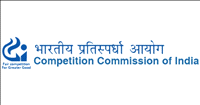India unveils intellectual property rights policy
14 May 2016
The government has announced a new intellectual property policy that will help speed up online registration of patents and trademarks, but resisted western pressure to amend its patent laws to suit the interests of multinational corporations seeking to conquer emerging markets.
The union cabinet on Thursday approved the National Intellectual Property Rights (IPR) Policy that will lay the future roadmap for intellectual property in India. The policy recognises the abundance of creative and innovative energies that flow in India, and the need to tap into and channelise these energies towards a better and brighter future for all.
The Department of Industrial Promotion and Policy (DIPP) under the ministry of commerce will be the agency in charge of regulating intellectual property rights in the country.
The National IPR Policy is a vision document that aims to create and exploit synergies between all forms of intellectual property (IP), concerned statutes and agencies. It sets in place an institutional mechanism for implementation, monitoring and review. It aims to incorporate and adapt global best practices to the Indian scenario.
''This policy shall weave in the strengths of the Government, research and development organizations, educational institutions, corporate entities, including MSMEs, start-ups and other stakeholders in the creation of an innovation-conducive environment, which stimulates creativity and innovation across sectors, as also facilitates a stable, transparent and service-oriented IPR administration in the country,'' a DIPP release stated.
The policy recognises that India has a well-established TRIPS-compliant legislative, administrative and judicial framework to safeguard IPRs, which meets its international obligations while utilising the flexibilities provided in the international regime to address its developmental concerns.
At the same time, it reiterates India's commitment to the Doha Development Agenda and the TRIPS agreement.
"We hope it will lead to an interpretation of the Indian Patent Act that respects innovation, encourages research and facilitates effective enforcement mechanisms," said Ranjana Smetacek, director general, Organisation of Pharmaceutical Producers of India, a body of multinational drugmakers in India.
''While IPRs are becoming increasingly important in the global arena, there is a need to increase awareness on IPRs in India, be it regarding the IPRs owned by oneself or in respect for others' IPRs. The importance of IPRs as a marketable financial asset and economic tool also needs to be recognised. For this, domestic IP filings, as also commercialization of patents granted, need to increase. Innovation and sub-optimal spending on R&D too are issues to be addressed,'' the release stated.
Commerce and industry minister Nirmala Sitharaman told lawmakers last month that over 237,000 applications were pending in India's four patent offices.
The policy also aims to spread awareness among public about trademarks, copyrights and patents to promote innovation within the country, as finance minister Arun Jaitley told reporters.
The new policy will try to safeguard the interests of rights owners with the wider public interest, while combating infringements of intellectual property rights.
The broad contours of the National IPR Policy are as follows:
The IPR policy envisions '' An India where creativity and innovation are stimulated by intellectual property for the benefit of all; an India where intellectual property promotes advancement in science and technology, arts and culture, traditional knowledge and biodiversity resources; an India where knowledge is the main driver of development, and knowledge owned is transformed into knowledge shared.''
The IPR policy mission is to ''Stimulate a dynamic, vibrant and balanced intellectual property rights system in India to: foster creativity and innovation and thereby, promote entrepreneurship and enhance socio-economic and cultural development; and too focus on enhancing access to healthcare, food security and environmental protection, among other sectors of vital social, economic and technological importance.
The IPR policy lays down the following seven objectives:
- IPR awareness: outreach and promotion - To create public awareness about the economic, social and cultural benefits of IPRs among all sections of society;
- Generation of IPRs - To stimulate the generation of IPRs;
- Legal and legislative framework - To have strong and effective IPR laws, which balance the interests of rights owners with larger public interest;
- Administration and management - To modernise and strengthen service-oriented IPR administration;
- Commercialisation of IPRs - Get value for IPRs through commercialisation;
- Enforcement and adjudication - To strengthen the enforcement and adjudicatory mechanisms for combating IPR infringements; and
- Human capital development - To strengthen and expand human resources, institutions and capacities for teaching, training, research and skill building in IPRs.
These objectives are sought to be achieved through detailed action points. The action by different ministries/ departments will be monitored by DIPP, which will be the nodal department to coordinate, guide and oversee implementation and future development of IPRs in India.






























